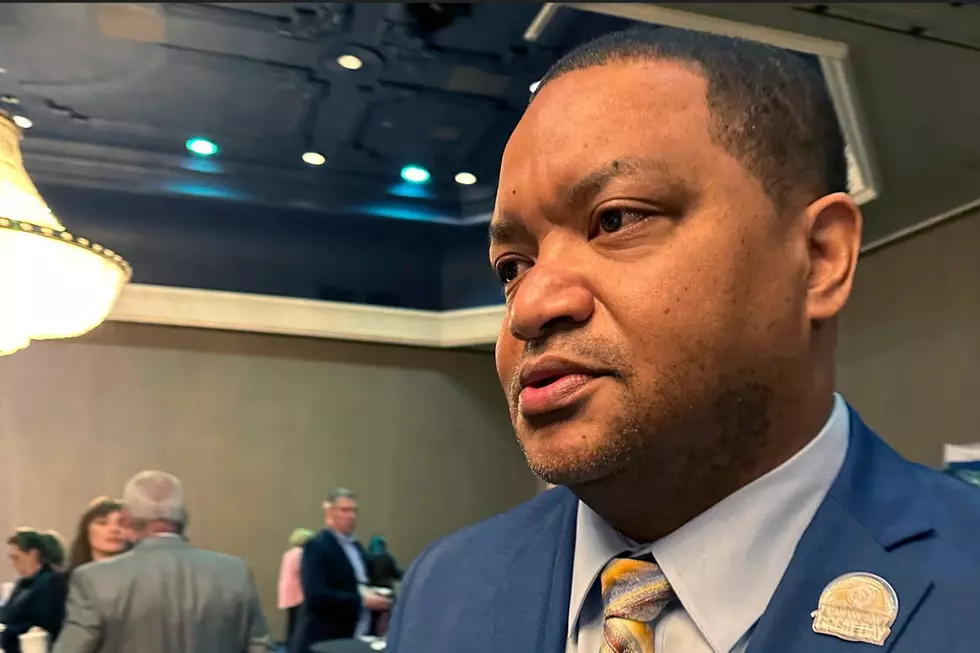
Calling pro leagues hypocrites, NJ to OK sports betting Thursday
Taking a few swipes at the professional sports leagues along the way, three legislative committees Monday endorsed a bill that could legalize sports betting in New Jersey casinos and racetracks by the end of the week.
The approvals by the Assembly tourism and Senate and Assembly appropriations committees sets up the bill – S2602/A4111 – for final legislative approval Thursday afternoon. Its sponsors hope Gov. Phil Murphy quickly signs it, with Monmouth Park preparing to take bets as soon as Friday.
“This has been a long journey for us in New Jersey and actually after seven years and a whole lot of money and a whole lot of fighting, we’ve won,” said Senate President Stephen Sweeney, D-Gloucester. “But what’s most important is that we do it right.”
But it’s not being done right, said representatives for the leagues, including former pitcher and Shore native Al Leiter, who said casinos and regulators should share information about bets with the leagues so they can detect problems – and provide the leagues a percentage of what’s wagered.
“New Jersey’s sports betting market is going to be as nontransparent to us and the other sports leagues as the illegal offshore betting markets are today,” said Bryan Seeley, a Major League Baseball senior vice president and deputy general counsel for investigations, compliance and security.
“There is nothing more important to our diehard fans than that the games they watch, the games they follow in the newspaper every day, remain unscripted, spontaneous entertainment, free from corruption and manipulation,” Seeley said.
Assemblyman Ralph Caputo, D-Essex, suggested that the leagues write New Jersey a $9 million check, to cover the cost of its years-long lawsuit, plus calculate the tax revenue lost since efforts to legalize sports betting began in 2011.
“The tool you’re looking for is money,” Caputo said. “That’s not going to happen. You might as well face that reality.”
The exchanges between Caputo and Seeley were particularly edgy.
“Part of my job is to protect the fans of baseball in this state, and I need tools to do that,” Seeley said.
“You guys are in it to make money. You’re not interested in protecting anybody,” Caputo said. “This is hypocrisy to the fullest extent. This is ridiculous. Nine years of fighting the state of New Jersey, and you come in here – you know, this sounds disgraceful. This is absolutely crazy.”
The leagues won’t spend more protecting the integrity of games than they do already, said Dennis Drazin, operator of Monmouth Park racetrack.
“In fact, we’ve made them money,” said Drazin, who estimates that $400 billion a year is wagered on sports illegally. “How many people really would watch an obscure game on a Monday night if they didn’t have some action on it? We’ve increased their viewership.”
The proliferation of sports betting will increase costs for sports leagues, said Dan Spillane, senior vice president and assistant general counsel for the National Basketball Association. He said the integrity fee being sought is “a quite modest request,” given that betting relies on the leagues’ products.
“We still don’t understand why asking for alerts of suspicious activity, information to be able to monitor suspicious activity in our games, cooperation in investigation of no-betting, no-fixing rules and things like that, why those are unreasonable asks,” Spillane said.
Lawmakers didn’t amend the bill to meet the leagues’ concerns, though they added language to the bill’s statement that says that prior to the promulgation of permanent rules, regulators from the state Division of Gaming Enforcement should meet with the leagues to share information about the types of bets permitted for each sport and how they will be enforced.
Under the bill, wagering on professional and collegiate sports – except games involving New Jersey colleges, or college games that take place in New Jersey – would be allowed at casinos, racetracks and tracks that closed since 1999, meaning tracks in Atlantic City and Cherry Hill.
Leiter told lawmakers that allowing bets on minor-league games played by the Lakewood Blue Claws and Trenton Thunder creates the same risk that lawmakers say they’re trying to avoid by not allowing wagering on New Jersey colleges. He said MLB games are also at greater risk.
“It is just so much more vulnerable,” Leiter said. “I’m not here about the money. I don’t care about the money. I don’t get paid for this. I’m not part of this. I’m not a lawyer. But I do know this: Having been in those clubhouses, there’s an additional vulnerability to all of the players. The minor league thing is a huge factor.”
Wagers could be placed by people age 21 or older either in person or online, although the bill was amended to say online wagering wouldn’t take effect until 30 days after the law is enacted.
Sports wagering revenue would be taxed at 8.5 percent for in-person bets and 13 percent for online bets. An additional 1.25 percent tax would be collected by the state for distribution to the counties and municipalities that host racetracks and casinos.
The bill is made possible by a May 14 ruling by the Supreme Court in New Jersey’s favor overturning a 1992 federal law that banned the expansion of sports betting. New Jersey had a small window at that time to approve such wagering but failed to act.
While New Jersey brought the lawsuit that eventually prevailed, it won’t be first on the East Coast to offer sports betting. Delaware will take its first sports bets Tuesday.
“It’s unfortunate that they beat us to the punch,” said lobbyist Bill Pascrell III, “so we have to keep, I believe, the pedal to the metal.”
Murphy’s proposed state budget for the fiscal year starting in July projects $13 million in revenues to the state from sports betting. Caputo said it’s intelligent to have a conservative estimate but that he thinks the revenues will be higher than that.
“So it’s better to underestimate,” Caputo said. “But it’s my opinion, and I think it’s the opinion of the leadership of the Senate and the Assembly, that this revenue will surpass that amount.”
Caputo said Las Vegas casinos receive $5 billion a year in gaming revenue – not just from sports betting – and that “I think we’re going to surpass that.”
New Jersey: Decoded cuts through the cruft and gets to what matters in New Jersey news and politics. Follow on Facebook and Twitter.
Michael Symons is State House bureau chief for New Jersey 101.5 and the editor of New Jersey: Decoded. Follow @NJDecoded on Twitter and Facebook. Contact him at michael.symons@townsquaremedia.com
More from New Jersey 101.5:
More From New Jersey 101.5 FM









